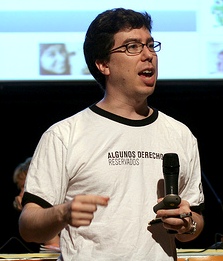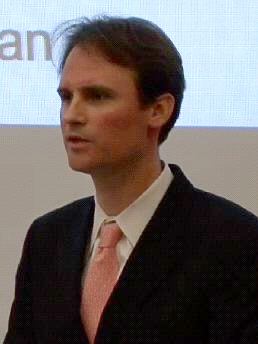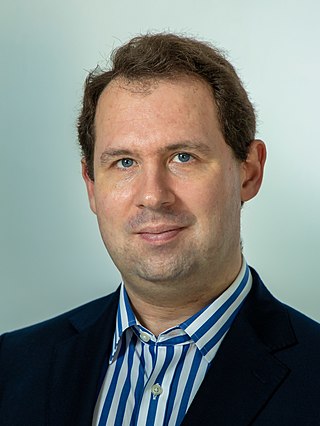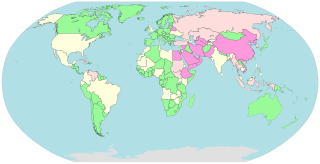The OpenNet Initiative (ONI) was a joint project whose goal was to monitor and report on internet filtering and surveillance practices by nations. Started in 2002, the project employed a number of technical means, as well as an international network of investigators, to determine the extent and nature of government-run internet filtering programs. Participating academic institutions included the Citizen Lab at the Munk Centre for International Studies, University of Toronto; Berkman Center for Internet & Society at Harvard Law School; the Oxford Internet Institute (OII) at University of Oxford; and, The SecDev Group, which took over from the Advanced Network Research Group at the Cambridge Security Programme, University of Cambridge.
In December 2014 the OpenNet Initiative partners announced that they would no longer carry out research under the ONI banner. The ONI website, including all reports and data, is being maintained indefinitely to allow continued public access to ONI's entire archive of published work and data. [1]
ONI used several methods to test and document internet censorship in a country.
The ONI principal investigators were: [2]
In December 2007, the International Development Research Center of Canada approved a $1.2 million (CAD) project to expand the work of the Open Net Initiative to 15 countries in Asia. The project aims to build capacity among partners located in these countries to carry on the work of the Open Net Initiative at a national level. ONI Asia is managed by Rafal Rohozinski (The SecDev Group), and Ronald Deibert (The Citizen Lab). The regional coordinator is Al Alegre (Foundation for Media Alternatives, Philippines).
Psiphon is a censorship circumvention solution that allows users to access blocked web pages in countries where the Internet is censored. Psiphon allows a regular home computer to act as a personal, encrypted proxy server that allows the administrator to specify a username and password that is, in turn, given to someone in a country where internet censorship is prevalent so that users in that country will be able to browse the internet in a secure, uncensored manner.
In 2008 Psiphon was spun off as a Canadian corporation that continues to develop advanced censorship circumvention systems and technologies. Psiphon maintains its research and development lab and computer network "red team" at The Citizen Lab, Munk Centre for International Studies, University of Toronto.
There are many research papers available from the ONI that show just how pervasive internet censorship is in a certain country or region. The topics covered in these papers include not only the software or solutions used to censor the Internet, but also what kind of content is blocked (political, social, conflict/security, Internet tools, pornographic, ...). [3]
Selected recent publications include:
In an 18 December 2014 announcement, ONI said that: [1]
After a decade of collaboration in the study and documentation of Internet filtering and control mechanisms around the world, the OpenNet Initiative partners will no longer carry out research under the ONI banner. The [ONI] website, including all reports and data, will be maintained indefinitely to allow continued public access to our entire archive of published work and data.
Numerous important and compelling areas of study build upon prior ONI research; ONI collaborators are actively pursuing these independently, jointly, and with new partners. We believe that the relevance and utility of this research agenda will continue to grow over time and that new tools, methods, and partnerships must emerge to meet this ongoing challenge.

Jonathan L. Zittrain is an American professor of Internet law and the George Bemis Professor of International Law at Harvard Law School. He is also a professor at the Harvard Kennedy School, a professor of computer science at the Harvard School of Engineering and Applied Sciences, and co-founder and director of the Berkman Klein Center for Internet & Society. Previously, Zittrain was Professor of Internet Governance and Regulation at the Oxford Internet Institute of the University of Oxford and visiting professor at the New York University School of Law and Stanford Law School. He is the author of The Future of the Internet and How to Stop It as well as co-editor of the books, Access Denied, Access Controlled, and Access Contested.

The Citizen Lab is an interdisciplinary laboratory based at the Munk School of Global Affairs at the University of Toronto, Canada. It was founded by Ronald Deibert in 2001. The laboratory studies information controls that impact the openness and security of the Internet and that pose threats to human rights. The organization uses a "mixed methods" approach which combines computer-generated interrogation, data mining, and analysis with intensive field research, qualitative social science, and legal and policy analysis methods. The organization has played a major role in providing technical support to journalists investigating the use of NSO Group's Pegasus spyware on journalists, politicians and human rights advocates.
Internet censorship in Tunisia significantly decreased in January 2011, following the ouster of President Zine El Abidine Ben Ali, as the new acting government removed filters on social networking sites such as YouTube.

Ronald James Deibert is a Canadian professor of political science, philosopher, founder and director of the Citizen Lab at the Munk School of Global Affairs, University of Toronto.

The Berkman Klein Center for Internet & Society is a research center at Harvard University that focuses on the study of cyberspace. Founded at Harvard Law School, the center traditionally focused on internet-related legal issues. On May 15, 2008, the center was elevated to an interfaculty initiative of Harvard University as a whole. It is named after the Berkman family. On July 5, 2016, the center added "Klein" to its name following a gift of $15 million from Michael R. Klein.

John Gorham Palfrey VII is an American educator, scholar, and law professor. He is an authority on the legal aspects of emerging media and an advocate for Internet freedom, including increased online transparency and accountability as well as child safety. In March 2019, he was named the president of the MacArthur Foundation effective September 1, 2019. Palfrey was the 15th Head of School at Phillips Academy in Andover, Massachusetts from 2012 to 2019. He has been an important figure at Harvard Law School and served as executive director of Harvard's Berkman Center for Internet & Society from 2002 to 2008.

Psiphon is a free and open-source Internet censorship circumvention tool that uses a combination of secure communication and obfuscation technologies, such as a VPN, SSH, and a Web proxy. Psiphon is a centrally managed and geographically diverse network of thousands of proxy servers, using a performance-oriented, single- and multi-hop routing architecture.

Use of the Internet in Yemen began in 1996 through the ISPs TeleYemen and the Public Telecommunications Corporation. By July 2016, 6,732,928 people were Internet users.
Multiple forms of media including books, newspapers, magazines, films, television, and content published on the Internet are censored in Saudi Arabia.

Internet censorship is the legal control or suppression of what can be accessed, published, or viewed on the Internet. Censorship is most often applied to specific internet domains but exceptionally may extend to all Internet resources located outside the jurisdiction of the censoring state. Internet censorship may also put restrictions on what information can be made internet accessible. Organizations providing internet access – such as schools and libraries – may choose to preclude access to material that they consider undesirable, offensive, age-inappropriate or even illegal, and regard this as ethical behavior rather than censorship. Individuals and organizations may engage in self-censorship of material they publish, for moral, religious, or business reasons, to conform to societal norms, political views, due to intimidation, or out of fear of legal or other consequences.
Censorship by country collects information on censorship, Internet censorship, freedom of the press, freedom of speech, and human rights by country and presents it in a sortable table, together with links to articles with more information. In addition to countries, the table includes information on former countries, disputed countries, political sub-units within countries, and regional organizations.
The Information Warfare Monitor (IWM) was an advanced research activity tracking the emergence of cyberspace as a strategic domain. Created in 2003, it closed in January 2012. It was a public-private venture between two Canadian institutions: The SecDev Group, an operational think tank based in Ottawa (Canada), and the Citizen Lab at the Munk School of Global Affairs, University of Toronto. The Principal Investigators and co-founders of the Information Warfare Monitor where Rafal Rohozinski and Ronald Deibert. The Information Warfare Monitor as part of the Citizen Lab’s network of advanced research projects, which include the OpenNet Initiative, the Fusion Methodology Centre, and PsiLab.

Steven James Murdoch is Professor of Security Engineering in the Computer Science Department, University College London. His research covers privacy-enhancing technology, Internet censorship, and anonymous communication, in particular Tor. He is also known for discovering several vulnerabilities in the EMV bank chipcard payment system and for creating Tor Browser.

An Internet outage or Internet blackout or Internet shutdown is the complete or partial failure of the internet services. It can occur due to censorship, cyberattacks, disasters, police or security services actions or errors.
This list of Internet censorship and surveillance by country provides information on the types and levels of Internet censorship and surveillance that is occurring in countries around the world.
Internet censorship circumvention, also referred to as going over the wall or scientific browsing in China, is the use of various methods and tools to bypass internet censorship.
A national intranet is an Internet Protocol-based walled garden network maintained by a nation state as a national substitute for the global Internet, with the aim of controlling and monitoring the communications of its inhabitants, as well as restricting their access to outside media. Other names have been used, such as the use of the term halal internet in Islamic countries.

This list of Internet censorship and surveillance in Europe provides information on the types and levels of Internet censorship and surveillance that is occurring in countries in Europe.

This list of Internet censorship and surveillance in Asia provides information on the types and levels of Internet censorship and surveillance that is occurring in countries in Asia
Freedom on the Net is an annual report providing analytical reports and numerical ratings regarding the state of Internet freedom for countries worldwide, published by the American non-profit research and advocacy group Freedom House. The countries surveyed represent a sample with a broad range of geographical diversity and levels of economic development, as well as varying levels of political and media freedom.